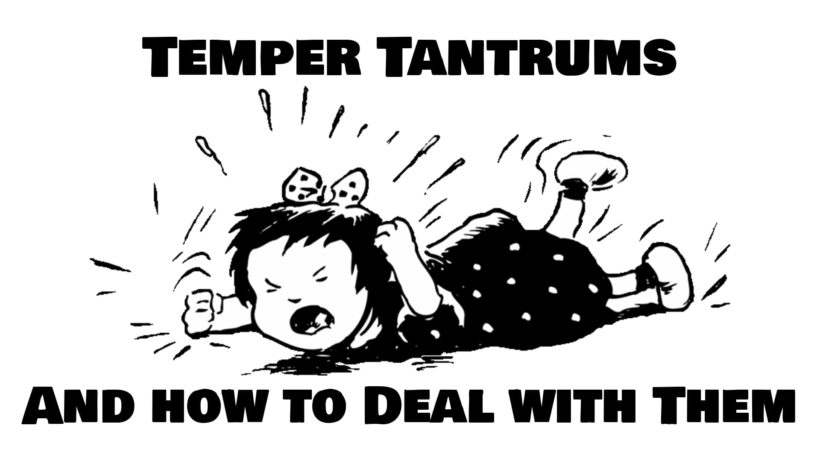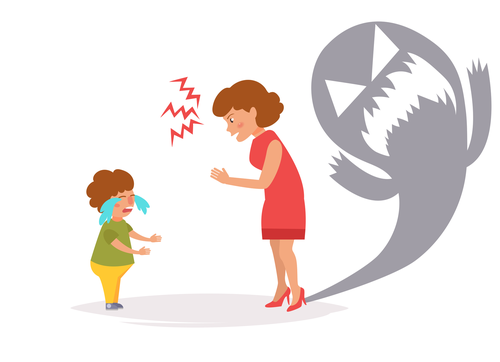Have you ever seen your child in rage? Yelling, screaming and rolling on the floor? Welcome to the tantrum land!
Tantrums are familiar to every parent with a child older than one. Your every “no” is a potential disaster, ending in yelling and screaming. To top it all, it’s best when it happens in public (seems like it always does). And it lasts and lasts and you start to consider joining your child and scream with him out of helplessness.
First, we want to say we understand you. And there is nothing wrong with you or your child.
We can define Tantrums as an intensive emotional outburst. They can strike anytime between ages 1 and 4, but usually around the second year (another name for tantrums is Terrible Twos!). Common behaviors are screaming, crying, stubbornness, defiance and sometimes aggression and self-injury.
Tantrums – why they happen
So, why do they happen? As mentioned before, they happen in a certain age range. In that time, brain regions responsible for emotional regulation are still in development. In other words, children still don’t know how to express their emotions or how to postpone their wishes. Everything is here and now. Another reason – they still don’t know which behaviors are acceptable and which are not. They will learn that in time and with the proper guidance.
Take yourself for example. Let’s say you are browsing the shop and you find some shiny new trinket and you really want it. You open your wallet and it’s empty as a bear stomach after hibernation. You may feel angry because of it but you won’t start crying and screaming. You know you need to wait for that big fat paycheck to come and then you will be able to buy what you want. Well, your child doesn’t know that and he’s acting on an impulse and that’s something you, as a parent, can help regulate.
What not to do during Tantrum Episode
So how do we deal with those nasty toddler tantrums? Let’s say you’re shopping with your child and he wants a chocolate. You decided not to buy it and he makes a scene. Everyone is looking at you, you tried everything but to no avail. What would be a mistake in this situation?
1) Cave in
Sometimes it would be so easy to just buy that chocolate. Screaming would stop and people would stop looking at you as a parenting failure. Right? No. Well, maybe at that moment things would improve. But the next time? And the time after that (and there will be time after that)? Children crave order and stability. They need to know that you mean what you say and that same rules apply no matter your mood. Children are testing your limits all the time and you must stand behind your decisions. Consistency is the key!
2) Yell or Threaten
Sometimes you feel so powerless that you lose control and start yelling. That is like adding fuel to the fire. Your child is overwhelmed with strong emotions and you losing control will make it worse. Remember that your child is not planning tantrums to spite you. They just don’t know how to cope with those intense emotions.
3) Laugh or imitate the child
There is a school of thought that some undesirable behaviors should be amplified and reflected back to the child. Like when he starts screaming, you start to scream even louder. Or laugh and make fun of him. Idea is that he will see how silly that behavior is. That strategy will backfire. Think how humiliating that is. The person you love the most is making fun of your feelings. Even if it sometimes works, the relationship with your child would suffer.
4) Try to reason with the child
You can try to explain why and how all you want, but in that moment of affect, it won’t matter. Your child can’t process what you are saying. It makes him more and more overwhelmed.
But there must be something we can do, right?
Good strategies to deal with tantrums
The best possible strategy would be to avoid a tantrum in the first place. Wait, there’s more to that, I promise. Every parent knows what makes his child tick.
For example, you go grocery shopping and you know that your child will go crazy when he sees sweets. Try avoiding those areas of the shop. Bring the distraction. You could have some “outing toys” that you will bring out only for situations like this. Predict what could cause the outburst and timely intervene with the song or the story. Use any trick available!
If your child always gets angry when he needs to put on his shoes, think ahead and make up some game. “Quickly! The floor is lava and only with the magical shoes can we stand on it!”
Act and use lots of affects. Parents sometimes think they shouldn’t try to avoid those situations. Children should just behave! Well, as you can imagine, that doesn’t work that way.
Learning to regulate those intense emotions is a process. But you can help by talking to your child about emotions. Share your own emotions, verbalize them, show where on your body do you feel them and what caused them. Help him recognize what emotions is he feeling. Once he can verbalize and deal with emotions, tantrums will disappear.
Okay, but if you are in the middle of a Tantrum, there are some things that can help.
First, stay calm! You need to guide your child and provide him with stability. Be there for him, stay close but don’t talk too much. Let him get it all out, wait patiently while he screams and yells.
If you think your child could hurt himself in his outburst, hug him and hold him. The calmer you are, the sooner will your child calm.
After the initial outburst passed, show your love and support! Tell him you love him and everything will be alright. The child will usually cry at this point and feel reassured that you are there for him. Good job!
After that, you can talk about what happened. Use it as a chance to talk about emotions and behaviors. All emotions are okay, but some behaviors are not okay.
Also, think a bit about your household rules – too frequent tantrums could mean your child feels out of control. Do you have many rigid rules at your house? Are you, in your protectiveness, limiting his exploration? Maybe you could make some adjustments there.
And remember how you thought that everyone thinks that you are a terrible parent? Well, actually they don’t! Everyone who has a child was in those situations many times. They are feeling enormous empathy for you! Everyone remembers how challenging tantrums can be.
If you’re searching for some great STEM Activities for Kids and Child development tips, you’re on the right place! Check the Categories below to find the right activity for you.








5 thoughts on “Challenges of being a parent – Temper Tantrum”